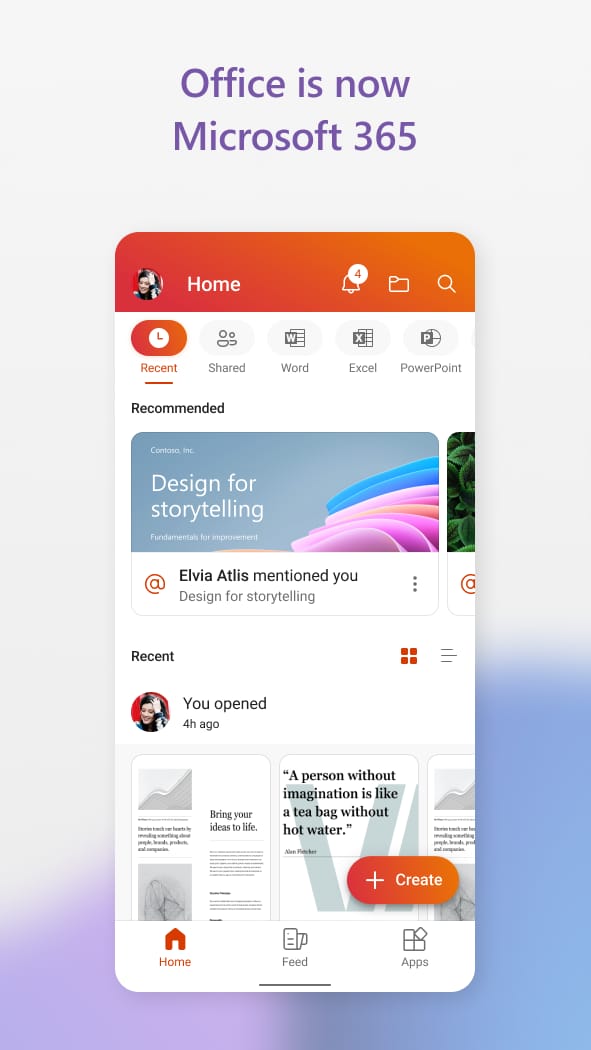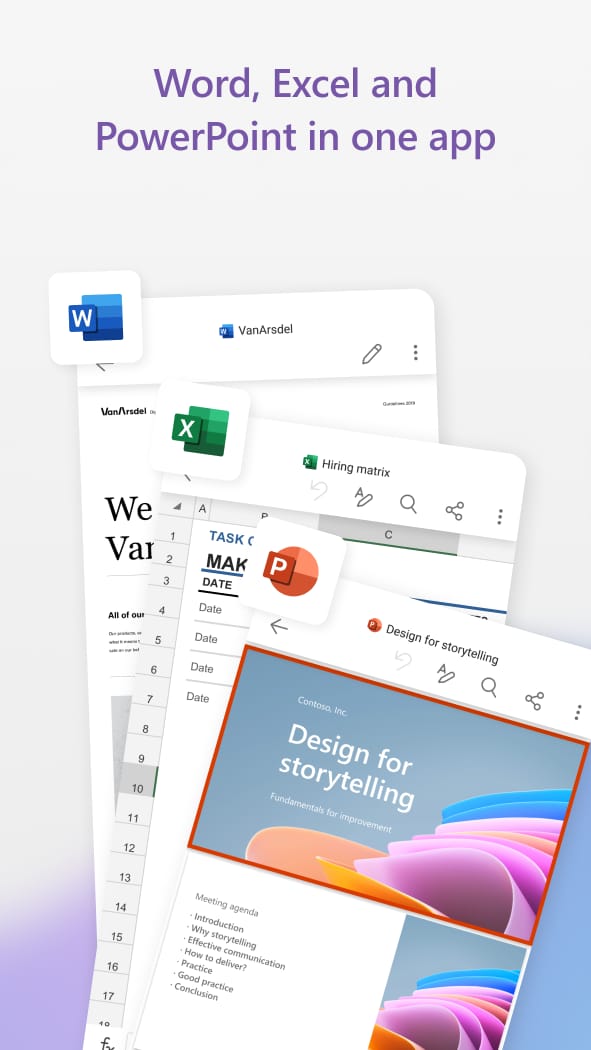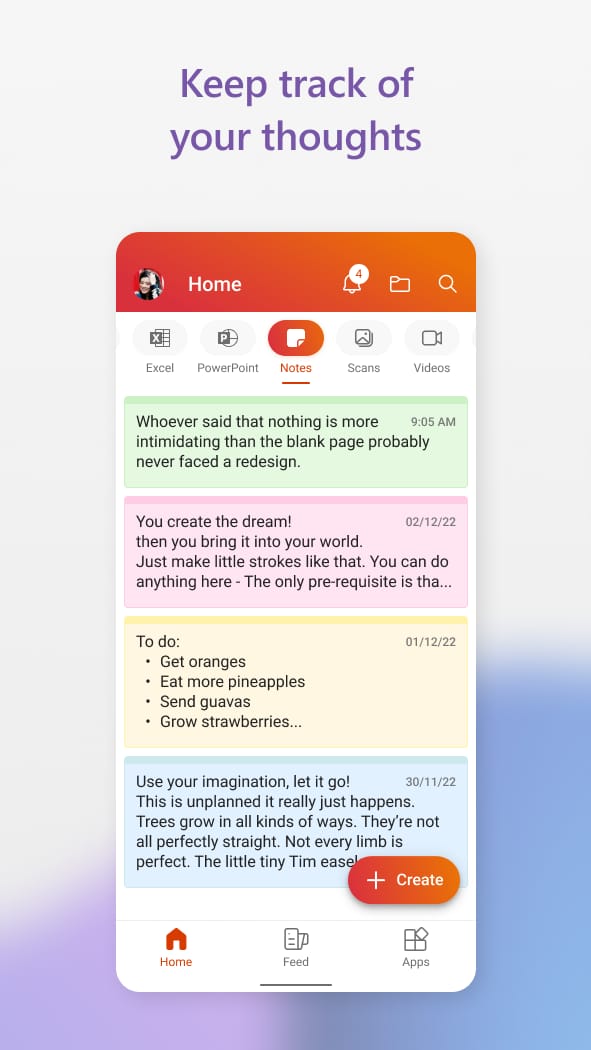 |
|
| Rating: 4.7 | Downloads: 500,000,000+ |
| Category: Productivity | Offer by: Microsoft Corporation |
The Microsoft 365 (Office) App has become an essential tool for individuals and businesses worldwide, enabling efficient productivity and seamless collaboration. This comprehensive suite of applications offers a wide range of features and benefits that enhance work efficiency and streamline tasks. From creating documents and spreadsheets to managing emails and scheduling appointments, the Microsoft 365 (Office) App provides a powerful platform for users to achieve their goals. In this article, we will delve into the key features and benefits of the Microsoft 365 (Office) App, as well as its pros and cons, user reviews, and alternatives.
Features & Benefits
- Document Creation and Editing: The Microsoft 365 (Office) App offers powerful tools for creating and editing documents, presentations, and spreadsheets. With applications like Word, PowerPoint, and Excel, users can easily craft professional-looking content, add multimedia elements, and collaborate with others in real-time.
- Email and Calendar Management: The app incorporates Outlook, a robust email and calendar management tool. Users can efficiently manage their emails, schedule appointments, set reminders, and organize their workflow. The seamless integration of email and calendar functionalities streamlines communication and enhances productivity.
- Cloud Storage and File Sharing: Microsoft 365 (Office) provides users with ample cloud storage through OneDrive, allowing them to store and access their files from anywhere. The app also enables easy file sharing, both internally within teams and externally with clients or partners. This feature promotes collaboration and eliminates the need for cumbersome file transfers.
- Team Collaboration: The app’s collaboration features, such as Microsoft Teams, facilitate seamless teamwork and communication. Users can create virtual workspaces, conduct video conferences, share files, and collaborate on projects in real-time. This enhances productivity and fosters efficient collaboration among team members, regardless of their physical location.
- Integration and Compatibility: Microsoft 365 (Office) integrates smoothly with other Microsoft products and services, such as SharePoint and Dynamics 365. It also offers compatibility with various devices and operating systems, including Windows, macOS, iOS, and Android. This cross-platform compatibility ensures that users can access their files and work seamlessly across different devices.
Pros
- Comprehensive Suite of Applications: The Microsoft 365 (Office) App offers a comprehensive suite of applications that cater to diverse needs, from document creation to email management. This eliminates the need for multiple software installations and provides a unified platform for various tasks.
- Real-time Collaboration: The app’s collaboration features, particularly Microsoft Teams, enable real-time communication and collaboration among team members. Users can work together on documents, conduct virtual meetings, and share ideas effortlessly, regardless of their physical location.
- Cloud Storage and Accessibility: The integration of OneDrive provides users with ample cloud storage and easy accessibility to their files from anywhere. This ensures that important documents and files are always accessible, even when working remotely or on the go.
- Regular Updates and Improvements: Microsoft consistently releases updates and improvements to the Microsoft 365 (Office) App, addressing user feedback and incorporating new features and security enhancements. This ensures that users have access to the latest tools and functionalities.
- Business and Enterprise Solutions: Microsoft 365 (Office) offers tailored solutions for businesses and enterprises, including advanced security features, compliance tools, and management capabilities. This makes it a suitable choice for organizations of all sizes, ensuring data protection and streamlined operations.
Cons
- Subscription-based Model: Microsoft 365 (Office) operates on a subscription-based model, requiring users to pay a recurring fee to access the full suite of applications and features. This may be a disadvantage for users who prefer one-time purchases or have budget constraints.
- Learning Curve: The extensive features and functionalities of the Microsoft 365 (Office) App may result in a learning curve for some users. It may take time for individuals to familiarize themselves with the various applications and optimize their workflow.
- Reliance on Internet Connectivity: The app heavily relies on a stable internet connection for seamless collaboration, cloud storage access, and updates. In areas with limited or unreliable internet access, users may face challenges in accessing their files and utilizing certain features.
- Compatibility Limitations: While Microsoft 365 (Office) offers compatibility with various devices and operating systems, some advanced features may be limited or unavailable on certain platforms. Users should ensure compatibility with their preferred devices and operating systems before committing to the app.
- Security and Privacy Concerns: As with any cloud-based service, users may have concerns about data security and privacy. It is crucial for users to review the app’s privacy policies, security measures, and data handling practices to ensure the protection of their sensitive information.
Apps Like Microsoft 365 (Office)
- Google Workspace (formerly G Suite): Google Workspace offers a suite of cloud-based applications, including Google Docs, Sheets, and Slides, for document creation and collaboration. It also provides Gmail for email management and Google Drive for cloud storage. With its seamless integration and real-time collaboration features, Google Workspace is a popular alternative to Microsoft 365 (Office) App.
- Apple iWork: iWork is Apple’s suite of productivity applications, including Pages, Numbers, and Keynote. These applications offer powerful document creation and editing capabilities, along with seamless integration across Apple devices. iWork is a viable alternative for users within the Apple ecosystem who prefer a native solution.
-
LibreOffice: LibreOffice is an open-source office suite that provides applications like Writer, Calc, and Impress. It offers a comprehensive range of features for document creation, spreadsheets, and presentations. As an open-source solution, LibreOffice is free to use and provides compatibility with various file formats, making it a cost-effective alternative to Microsoft 365 (Office) App.
Screenshots
 |
 |
 |
 |
Conclusion
The Microsoft 365 (Office) App is a powerful suite of applications that empowers productivity and collaboration. With its comprehensive features, seamless integration, and cloud-based capabilities, it has become an indispensable tool for individuals and businesses alike. While the app offers numerous benefits, such as document creation and editing, email and calendar management, cloud storage, and team collaboration, it also has its pros and cons. The subscription-based model, learning curve, reliance on internet connectivity, and compatibility limitations should be considered before making a decision.
Overall, the Microsoft 365 (Office) App provides a robust and versatile platform for users to enhance their productivity, streamline workflows, and collaborate effectively. Its continuous updates and tailored solutions for businesses make it a leading choice in the market. However, users should assess their specific needs and preferences, as well as their budget and compatibility requirements, before committing to the app.


